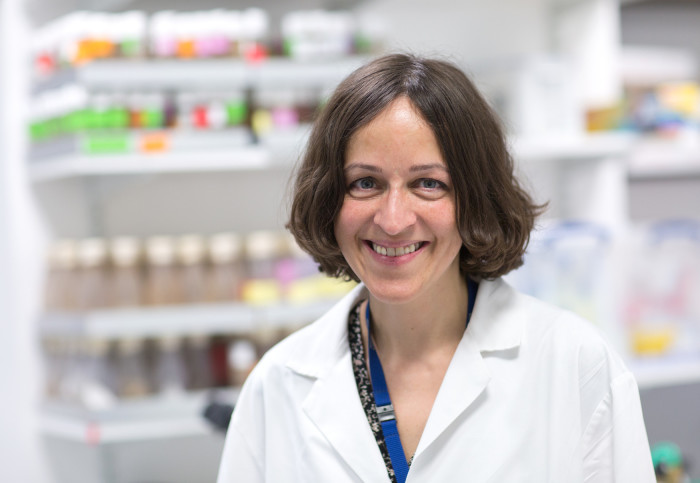ERC Grant for groundbreaking research on organ shape and position

An Imperial researcher has received new funding for their work exploring why organs are the shape they are.
Professor Irene Miguel-Aliaga, the leader of the MRC London Institute of Medical Sciences (MRC LMS) Gut Signaling and Metabolism, has been awarded her third grant by the European Research Council (ERC).
The ERC Advanced Grant is one of Europe’s most prestigious funding schemes, rewarding exceptional research leaders with a proven track record of significant achievements over the past decade. The 218 winners, including Professor Miguel-Aliaga, will share a €544 million funding pool to support their research across a range of fields. Past recipients have included Nobel laureates and other leading scientists who have gone on to make major contributions to their respective fields.
Professor Miguel-Aliaga, who is part of Imperial College London's Institute of Clinical Sciences, aims to use this ERC funding to answer fundamental questions – why are organs the shape they are, and why are they positioned where they are? The proposal is titled ‘Gut Origami: The Geometry of Inter-Organ Communication’.
"If we find that, like in Drosophila, the intestine is a key source of reproductive signals, we could perhaps one day curb tsetse populations (and therefore disease transmission) by targeting these intestinal processes." Professor Irene Miguel-Aliaga Institute of Clinical Research
Her team at the LMS, which is known for its expertise in this area, has previously used Drosophila fruit flies to show that the intestine of males and females is very different, and that this is because this organ engages in communication with the reproductive organs to sustain reproduction. She now hypothesises that the shape and position of the intestine and other organs are not developmental accidents, but rather there is a logic to their three-dimensional arrangement, which allows them to communicate with one another.
Using their new methods in the LMS state-of-the-art research facility to visualise, quantify and genetically target organs in 3D, the team hopes to further interrogate why organs have the shapes and positions they do. This groundbreaking research may have important implications for tackling global health issues: they also plan to apply their techniques to genetically target organs in flies to tackle the transmission of fatal diseases, such as sleeping sickness and nagana, which are transmitted by tsetse flies in Africa.
Professor Miguel-Aliaga said: "If we find that, like in Drosophila, the intestine is a key source of reproductive signals, we could perhaps one day curb tsetse populations (and therefore disease transmission) by targeting these intestinal processes.
"We are also applying our methods to the study of the human gastrointestinal tract to understand whether and how it differs between males and females or between health and disease."
The winning of the ERC grants is a fantastic achievement for Professor Miguel-Aliaga and pays tribute to the critical importance of answering fundamental biomedical questions to tackle worldwide health issues. It will bring new job opportunities for postdoctoral fellows, PhD students, and other staff at the LMS and bring them even closer to Europe’s scientific community.
Supporting ambitious research
The European Commissioner for Innovation, Research, Culture, Education, and Youth, Mariya Gabriel, has praised the recipients, saying, "ERC grants are a top recognition and a significant commitment from our best researchers. The €544 million funding puts our 218 research leaders, together with their teams, in pole position to push back the boundaries of our knowledge, break new ground and build foundations for future growth and prosperity in Europe."
Professor Miguel-Aliaga added: "I am very happy to see that others share my excitement for this new idea and also very relieved that everyone in the lab whose good work led to this proposal will now be able to carry on working on this project.
"We are very grateful to ERC for their continued support since 2012 which has allowed us to tackle new, unorthodox and experimentally challenging ideas."
Overall, the ERC Advanced Grants provide a fantastic opportunity for exceptional researchers to pursue ambitious and curiosity-driven projects that could lead to major scientific breakthroughs. Professor Miguel-Aliaga’s latest grant promises to add new layers of understanding to our knowledge of inter-organ communication and advance our understanding of the physiology of organs and organisms.
Article supporters
Article text (excluding photos or graphics) © Imperial College London.
Photos and graphics subject to third party copyright used with permission or © Imperial College London.
Reporter
Ms Sofia Velazquez Pimentel
Institute of Clinical Sciences